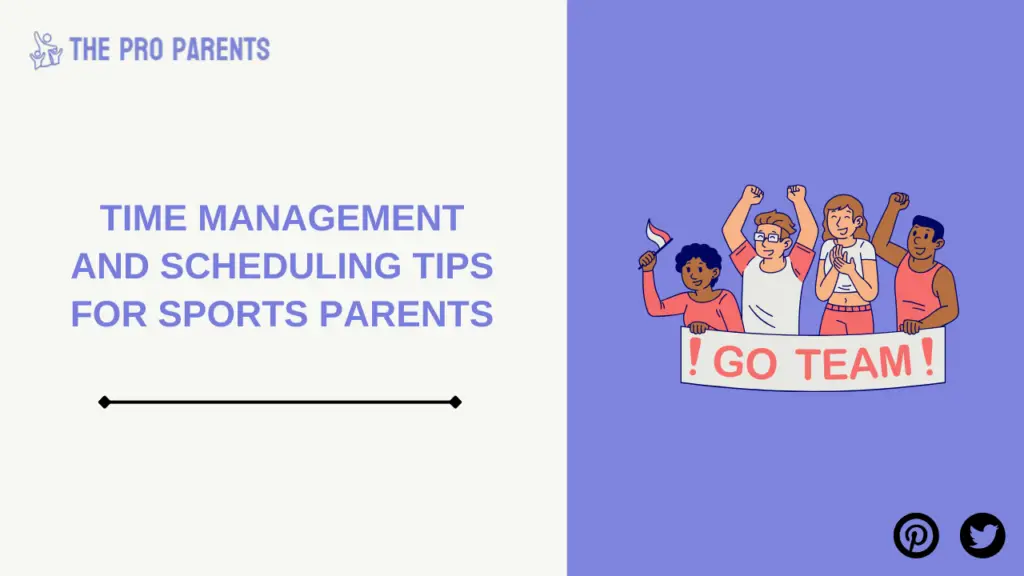Youth sports are more than just a way for kids to stay active—they’re an opportunity for growth, teamwork, and personal achievement. If you’re a sports parent, you play a pivotal role in your child’s athletic development and overall well-being. From providing encouragement during tough losses to ensuring they’re equipped with the right gear, the responsibility can feel overwhelming, but it’s also incredibly rewarding.
This guide is designed to highlight the essential tools, tips, and strategies that will help you support your young athlete every step of the way. Whether you’re new to parenting a sports enthusiast or a seasoned sideline cheerleader, you’ll find actionable advice to make the most of your child’s sports experience.
Table of Contents
Understanding the Role of Sports Parents

What Makes Sports Parents Essential for Their Kids?
Your influence as a parent goes far beyond chauffeuring your child to practice or cheering from the stands. Sports parents are the backbone of a young athlete’s success, providing emotional, physical, and logistical support. Here’s how:
- Boosting Confidence: Positive encouragement from parents helps children build self-esteem and resilience.
- Instilling Values: Sports teach discipline, teamwork, and the importance of effort—all values reinforced by engaged parents.
- Creating Opportunities: Whether it’s signing them up for a league, buying equipment, or helping them develop skills, parents help open doors to sportive experiences.
For broader insight into parenting decisions, check out Why Do Kids Have Silver Teeth?.
Remember, the best sports parents create an environment where their children can grow into well-rounded individuals who love the game, instead of feeling pressured to excel for someone else’s expectations.
Must-Have Gear for Sports Parents

The Essential Sports Equipment for Your Young Athlete
Equipping your child with the right gear is crucial for both safety and performance. Here’s a breakdown of must-haves by sport:
- Soccer: Cleats, shin guards, a high-quality water bottle, and a durable soccer ball.
- Basketball: Properly-sized basketball, supportive athletic shoes, and a sweatband for comfort.
- Tennis: Lightweight tennis racquets (adjusted to age and level), non-slip tennis shoes, and a sturdy sports bag.
Pro Tip: Make regular maintenance part of your gear checks, like cleaning cleats or untangling nets, to ensure equipment remains in top shape.
Also, care for your child’s equipment as you would their health. Learn more about the importance of maintenance by reading Is It My Fault My Kid Has Cavities?.
Supporting Your Athlete: Nutritional Must-Haves

Keeping Your Young Athlete Energized and Healthy
Fueling your child’s athletic pursuits with the right nutrition is essential for peak performance. Here’s what to keep in mind:
- Pre-Game Meals: High-carb, low-fat options like whole-grain pasta or a turkey sandwich.
- Healthy Snacks: Apple slices with peanut butter, yogurt with granola, or energy bars.
- Hydration: Always pack water or electrolyte drinks like coconut water for practices and games.
Easy Recipe to Try:
Peanut Butter Banana Energy Balls
Ingredients:
- 1 cup oats
- 2 tablespoons peanut butter
- 1 banana
- 1 tablespoon honey
Mix the ingredients, roll into balls, and refrigerate—perfect for an energy-boosting snack.
For additional health insights, explore our numerous articles for parents on maintaining your child’s wellness.
Physical and Mental Health Support

Physical Care and Mental Well-Being for Sports Kids
Success on the field often begins with robust physical and mental health. Here’s how you can ensure both:
- Prevent Injuries: Make warm-ups, cool-downs, and stretches non-negotiable.
- Support Recovery: Ensure enough sleep and provide rest days to prevent burnout.
- Encourage Mental Toughness: Help them focus on effort over results and provide a listening ear when they face challenges.
Consider incorporating activities like yoga for relaxation and core strength or mindfulness exercises for staying mentally agile.
If your child feels supported emotionally, they’re more likely to thrive both on and off the field.
Time Management and Scheduling Tips for Sports Parents

Balancing Sports, School, and Family Life
Juggling games, practice sessions, homework, and family time is no easy feat. To stay organized, try these tips:
- Use a Shared Calendar: Tools like Google Calendar or family apps can track everyone’s schedules.
- Establish Priorities: Discuss as a family what activities take precedence during busy weeks.
- Meal Prep Ahead: Save time with make-ahead lunches and dinners during hectic match weeks.
With careful planning, you can ensure that sports complement, rather than dominate, your family’s routine.
Developing a Positive Sports Parenting Mindset

Encouraging Your Child Without Overloading Them
Being a supportive parent involves striking the right balance between motivation and pressure. Avoid common pitfalls by:
- Focusing on Fun: Encourage your child to enjoy the sport, regardless of wins or losses.
- Praise Effort Over Results: Acknowledge their dedication and progress, not just their achievements.
- Avoid Over-Scheduling: Leave room for free play and rest to avoid burnout.
Take inspiration from Famous Parenting by Chelsea Acton for professional advice on nurturing children through challenges.
Supporting Team and Community Engagement

Building a Strong Network for Your Young Athlete
Sports aren’t just about individual growth—they’re also about building bonds that last a lifetime. Strengthen your connections by:
- Getting to Know Other Parents: Support each other during games and carpools.
- Volunteering: Whether it’s coaching or organizing snack duty, staying involved strengthens the team dynamic.
- Connecting with Coaches: Open communication ensures your child is receiving the right guidance.
An engaged parent builds a warmer atmosphere that helps kids and teams thrive.
Financial and Emotional Considerations for Sports Parents

Navigating the Costs of Youth Sports and Your Emotional Commitment
Youth sports can be costly, but with planning, you can manage it effectively:
- Cost Saving Tips: Buy second-hand gear, share travel costs, and look for scholarship opportunities.
- Emotionally Invested, Not Overwhelmed: Sports parents often experience stress, too. Seek support when juggling multiple priorities feels overwhelming.
Remember, your sacrifices—financial or emotional—are investments in your child’s holistic development.
Helping Your Athlete Thrive, On and Off the Field
Being a sports parent comes with challenges, but it also brings incredible rewards. From emotional support to practical strategies, your role in your child’s sports experience creates lifelong memories and shapes their future. Implementing these must-haves will help you nurture their talents while fostering a love for the game.
Sports may demand a lot, but your involvement makes all the difference. Cheer loud, stay present, and enjoy the ride. Your athlete’s success is as much yours as it is theirs.
FAQ
What gear do sports parents need to support their child?
Essentials include shoes, jerseys, water bottles, and protective gear for each sport.
How can I support my child’s mental health in sports?
Encourage relaxation, positive reinforcement, and focus on effort, not just results.
What are the best snacks for young athletes?
Fruit, granola bars, and smoothies are perfect for pre-game energy boosts.
How can I manage my child’s sports schedule effectively?
Use a weekly calendar to organize practices, games, and family time.
What are key considerations for sports parents’ emotional support?
Provide encouragement, manage expectations, and be there during setbacks.



